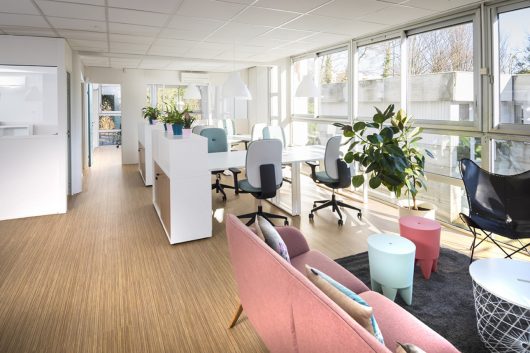FLEXIBILITY IN WORK IN THE SERVICE OF PRODUCTIVITY

In the context of companies’ perpetual quest for competitiveness and productivity, the issue of flexibility at work has now become substantial. Regus, a world leader in providing flexible workspaces in business centers, has studied the subject and conducted a survey of more than 16,000 senior managers around the world to decipher the consequences of flexibility at work.
Productivity and profitability of companies but also well-being and motivation of employees are the main impacts found, further encouraging the potential for developing flexibility for the future of work.
Foundations and legitimacy of flexibility in work
Faced with the ever-present need for companies to be competitive, but at the same time as employees’ behaviors and expectations are changing, flexibility at work has very quickly moved from being an “emerging concept” to a “healthy method”.
Indeed, while the constant improvement of technologies and communication tools makes it possible to envisage flexibility in the workplace (particularly in terms of hours and/or location) in a more reliable way, this solution is also a real response to the growing demands of employees with regard to their working conditions, mainly in favor of a better balance between professional and personal life.
And the extent to which employees are embracing the concept of flexibility is confirmed in the study conducted by Regus, with 75% of French and global employees surveyed stating that they are working more and more flexibly. Apart from a response that concerns all employees in a global way, the model is particularly interesting for young parents, enabling them to better reconcile their professional commitments with their family life, as well as for older people who wish to reduce their activity gradually before retirement.
Flexibility at work, a guarantee of productivity and profitability
According to the Regus survey, the causal relationship between flexibility and professional productivity is clear. Thus, 69% of the French companies surveyed (and 72% worldwide) put the increase in their productivity in parallel with the implementation of flexible working methods. The quality and speed of decision making are also beneficial consequences observed by respondents.
Similarly, 63% of national and 68% of global companies link revenue growth to the introduction of flexible working methods. Flexibility and attractiveness are also closely linked in this survey, with 8 out of 10 executives stating that they would prefer a job that provides flexible conditions rather than one that offers none. This shows the dual appeal of this concept, which serves both the economic interests of the company and the well-being and loyalty of employees.
The impact of flexibility at work on employee well-being
From the employees’ point of view, the study highlights the relationship between pleasure and flexibility at work. Indeed, control over their working life and greater freedom necessarily lead to employee satisfaction while reducing their daily stress. Worldwide, 58% of the survey participants report feeling healthier and 63% find that they are more stimulated and motivated since the introduction of flexibility in their working conditions.
In general, it seems clear that this dynamism leads employees to feel more involved in the life of their company and therefore more enthusiastic about serving its interests. Trust is then mutual, investment is natural and objectives are shared.
For Frédéric Bleuse, Regus’ Managing Director for France, employee satisfaction in their work is also a guarantee of loyalty, minimizing the risk of resignation.

